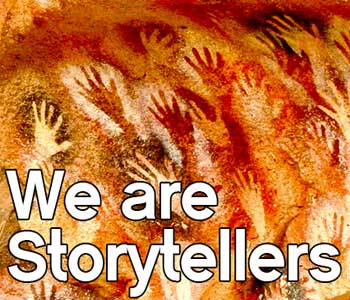Feature Article Writing Services
For individuals, businesses and organizations

“Your contribution to the first-ever “Fantasy 18” gives this piece an unrivaled vibrancy and personality that surpasses our competitor’s publications.”
~ JoAnne Zeterberg, Director of Creative Services,
Scottsdale Convention & Visitors Bureau
A feature article has its roots in storytelling
If the news of the day is a major earthquake, a feature story would be about the survivors and how they coped with the disaster. A good feature introduces a topic that involves a human element and builds upon it with supporting descriptions and detail that make it come alive. It can appear in a magazine or newspaper as well as on the Internet. Or perhaps be read aloud around a campfire.
Structure of a good feature article
The feature is meant to inform and entertain. It opens with a lead designed to get the reader interested in reading more. This could be by way of a surprising statement, an anecdote, even a quote or question. The story develops through interviews and research from credible experts and sources which give background information and contribute to setting the scene.
A successful feature ends in a way that ties together all the details. It doesn’t have to be a fairytale ending, but the reader must be satisfied that it makes sense or is somehow justifiable.
Feature writing is an art in the hands of an expert
Most stories are told chronologically, that is, “This happened and then that happened.” But an experienced writer knows more than one way to tell a story and which format would best suit a certain topic.
If it’s complex, sometimes organizing the information in a simple list may be the best way to present it clearly in the body of the story with explanations for each item. Or the items in an article can be classified into groups of like topics and introduced by group.
Like the magical meal that a good cook can create out of the simplest ingredients, a good writer can turn an otherwise commonplace event into a compelling story. Consider asking the question, “Who is the audience?” for this topic and write as if you were telling the story to those individuals directly.
Different types of feature articles
Profiles are a predominant type of feature writing
A personality profile is about an individual, whether a celebrity or an interesting average person. It would begin by telling what brought him/her to the attention of the writer. It could be a political controversy, an award recently earned, a lottery win—something newsworthy, whether local, national, or international.
Describing the event is followed by telling about the person’s background and how it contributed to the present situation. Personal stories as written in People are profiles, as are the longer, more in-depth stories about people in Vanity Fair.
Promotional feature article
It looks like a feature article, but it’s a little thin on content and the intent is clearly to lead the reader to a commercial website or product. The industry term for this kind of article is “advertorial,” or most recently, “native advertising.”
It is written in the easy format of a feature article, telling the story of a destination, and usually found in a glossy magazine. You may see “promotion” or “advertisement” in small print at the top of the page. The advertorial is not considered as overtly promotional as a typical advertising piece like a brochure.
Blog posts sometimes resemble feature stories
Some companies and individuals have taken to writing blog posts more as fully-reported stories than what blogs used to be. Blogs typically represent the opinion of an individual. They also can serve the needs of magazines by including material that may not fit in the print edition or that may drive people to the magazine.
If a publication hires an outside writer to post blogs, the writer is more inclined to research and prepare as if it were an article.

“Cori and I worked on several freelance writing projects early in our careers. She is extremely professional and a great source of inspiration. Cori is someone who goes the extra mile to provide quality content for her projects.”
~ Lee Daley, Editor, Writer, Photographer at Epicurean Destinations
What it takes to write a great feature article
“The difference between the almost right word and the right word is really a large matter. ’tis the difference between the lightning bug and the lightning.”
~ Mark Twain

Getting the facts right
Feature articles may focus on “the people story,” but they still require attention to detail and accurate research. Every good feature is built on a foundation of facts that can be trusted. But how can you be sure to get it right? Only use knowledgeable, credible sources. It takes willingness to do your homework and get familiar with the topic even before you meet so you can ask the right questions. Some writers use a tape recorder for interviews, some take notes, and some do a combination of both.
Good interviewing makes for a better story
Interviewing is a specialized skill which requires much preparation. It involves knowing the destination, its background and the people you will meet, before you even get there.
Empathy is a powerful emotion. People are more likely to trust you and speak freely if they feel you understand them. You will get more revealing and informed responses if you create interview questions coming from that place.
Painting a picture with words
Every good writer has cultivated good observation skills. Do you really see the terrain, the setting, the people? This is essential because you must set the scene where the story takes place. Only then can you tackle the challenge of creating a story that will capture a reader’s attention.
For instance, if writing a story about a certain golf course, consider if there is more to the story than just the course itself. It takes going beyond the golf and describing the entire destination. Be inclusive. If it’s a seaside location, what ocean activities are available before or after golf, like snorkeling, scuba, surfing? What about whale watching? There may be a serious environmental issue familiar to anyone who knows the area. The writer would be remiss not to mention that situation, however briefly.
